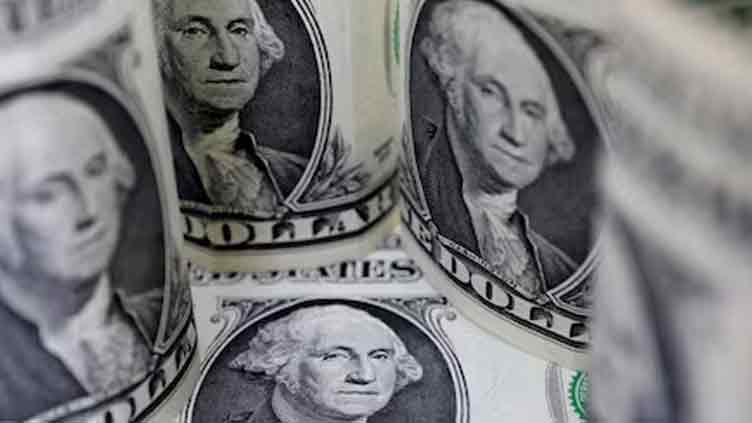Dollar set for weekly rise as Middle East conflict fuels safe-haven demand

Business
The Swiss franc was flat at 0.816 per dollar
(Reuters) - The dollar was set for its biggest weekly rise in over a month on Friday, as uncertainties about a raging war in the Middle East and the potential repercussions for the global economy fuelled an appetite for traditional safe havens.
The conflict between Israel and Iran shows no signs of subsiding and market participants are nervous about possible U.S. attacks on Iran, sparking a surge in the greenback.
The dollar index, which measures the U.S. currency against six other key rivals, including the Swiss franc, the Japanese yen and the euro, is poised to rise 0.55% this week.
Israel and Iran have been waging a week-long air battle as Tel Aviv seeks to thwart Tehran's nuclear ambitions. The White House said U.S. President Donald Trump will make a decision within the next two weeks about whether to join Israel in the war.
That helped soothe nervous investors worried about an imminent U.S. attack on Iran, even though the prospect of a broadening Middle East conflict kept risk appetite in check.
Brent crude prices eased over 2%, but at $77 a barrel it was close to the January peak it hit last week. The recent spike in oil prices added a new layer of inflation uncertainty for central banks across regions which have been grappling with the potential impact of U.S. tariffs on their economies.
"Rising oil prices introduce inflation uncertainty at a time when growth is weakening," said Charu Chanana, chief investment strategist at Saxo.
"That makes central banks' jobs much harder — do they ease to support growth or hold back to avoid fuelling inflation? Most seem to be prioritising growth concerns for now, assuming that crude gains may not be sustained."
The drop in crude prices supported the currencies of net oil importing economies such as the euro and the yen. The euro firmed 0.17% to $1.1515, while the yen edged up 0.1% to 145.33 per dollar.
"The FX market has taken the somewhat lower probability of the US intervening in Iran already this weekend as an opportunity to re-enter USD short positions, especially against European currencies," Francesco Pesole wrote in a note to clients.
The Bank of England is worried, among other things, that the conflict between Israel and Iran could lead to another energy price rise in an economy that already has some of the most expensive energy in Europe.
Also underpinning the yen's gains was hotter-than-expected inflation data that kept expectations for further interest rate hikes alive. This view was backed by minutes from the Bank of Japan's policy meeting this week that showed policymakers agreed on the need to keep raising rates that are still at very low levels.
Although the Federal Reserve earlier this week stuck with its forecast of two interest rate cuts this year, Chair Jerome Powell warned of "meaningful" inflation ahead.
Analysts saw the central bank's delivery as a "hawkish tilt" further underpinning the greenback's gains this week.
The Swiss franc was flat at 0.816 per dollar but was set for its largest weekly drop since mid-April after the country's central bank lowered interest rates to 0%.
Investors were, however, taken aback by an unexpected 25-basis-point interest rate cut by Norges Bank and the krone is down by more than 1% against the dollar this week.
Though geopolitical tensions were the main market focus this week, concerns about a trade war and the impact they it may have on costs, corporate margins and overall growth are ever-present, as Trump's early July tariff deadline looms. These concerns have weighed on the dollar, which is down about 9% this year.
Currencies positively correlated to risk sentiment such as the Australian and New Zealand dollars inched up by 0.1% each.
Elsewhere, the yuan inched up and last fetched 7.18 after China kept benchmark lending rates unchanged as expected.
Sterling was muted at $1.347, paring earlier gains after British retail sales volumes recorded their sharpest drop since December 2023 last month.


